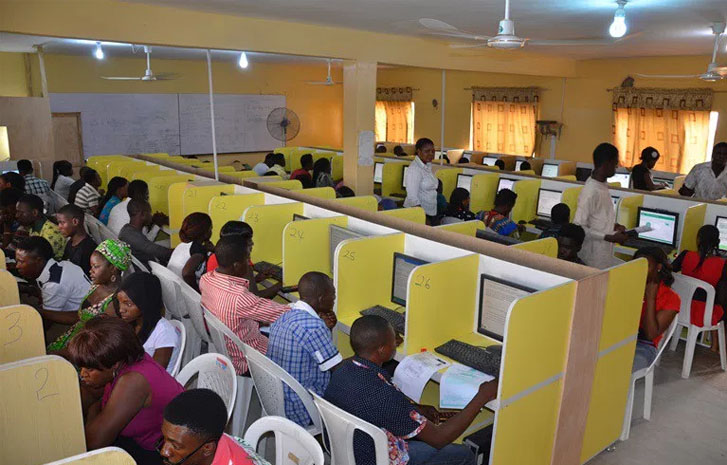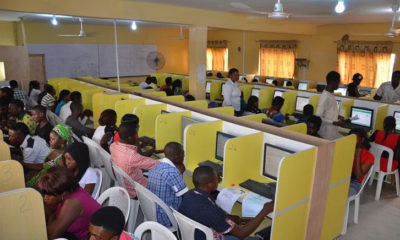- 2019 UTME: 1.3m Candidates Scored Below 50%
The just concluded Unified Tertiary Matriculation Examination (UTME) has further highlighted the poor state of Nigerian educational system.
According to Prof. Ishaq Oloyede, the registrar, Joint Admission and Matriculation Board (JAMB), out of the 1,792,719 candidates that sat for the 2019 UTME, about 76.2 percent scored below 50 percent, while 1,366,509 candidates scored below 59 percent.
“361,718 candidates scored between 180 and 199 as against 325,152 in 2018, while 494,484 scored between 160 and 179 as against 455,898 last year,” Oloyede stated.
“410,844 candidates scored between 140 and 159 as against 346,825 recorded in 2018 while also 99,463 scored between 100 and 139 as against 64,712 in 2018.”
The board withheld a total of 49,265 results, 34,120 of those were held for examination malpractice and 15,145 remaining for further clarification.
It wasn’t all bad as 15 years old Ekele Franklin from Imo state saved the day by scoring 347 in the examination, the highest overall. He was closely followed by 16 years old Emmanuel Chidebube from Abia who scored 346, while 17 years old Isaac Olamide from Osun came third with 345.
In all, 2,906 candidates scored over 300, lower than the 4,683 recorded in 2018. Again, the number of candidates that scored between 250 and 299 dropped from 64,120 in 2018 to 57,579 in the 2019 UTME.
However, the number of candidates that scored between 200 and 249 rose to 366,757 in 2019, better than the 2018 results.
The results showed the number of candidates that scored above 300 in 2018 dropped by 37.9 percent in 2019, indicating a declining performance across the system. More than 1.36 million of the total students that sat for the examination scored below 50 percent, meaning most universities would have to lower their cutoff marks to admit students, especially in the Northern part of the country.
Students should follow this link to see how they can check their results via SMS
Over the years, experts have highlighted the significances of a standard educational system to national growth. Recently, prof Ndubuisi Ekekwe, during his speech ‘the Growth of Nations‘ at the platform, explained how the American educational system enhanced his capability to build robots and empowered him to invent a technology now patented by the U.S. and top corporations.
He stated that Nigeria is an inventive nation with no substantial innovations to stimulate growth. According to him, an inventive society is a society that postulates and discusses possibilities without meaningful innovations.
This, he attributed to the poor educational system that failed to prepare students for the real world and insisted that until private investors come in to complement government efforts, we may not get the system right. A good system is a product of investment and strategies.


 Naira4 weeks ago
Naira4 weeks ago


 Naira4 weeks ago
Naira4 weeks ago


 Naira3 weeks ago
Naira3 weeks ago


 News4 weeks ago
News4 weeks ago
 Travel4 weeks ago
Travel4 weeks ago




 Naira4 weeks ago
Naira4 weeks ago


 Jobs3 weeks ago
Jobs3 weeks ago
 Naira3 weeks ago
Naira3 weeks ago



















